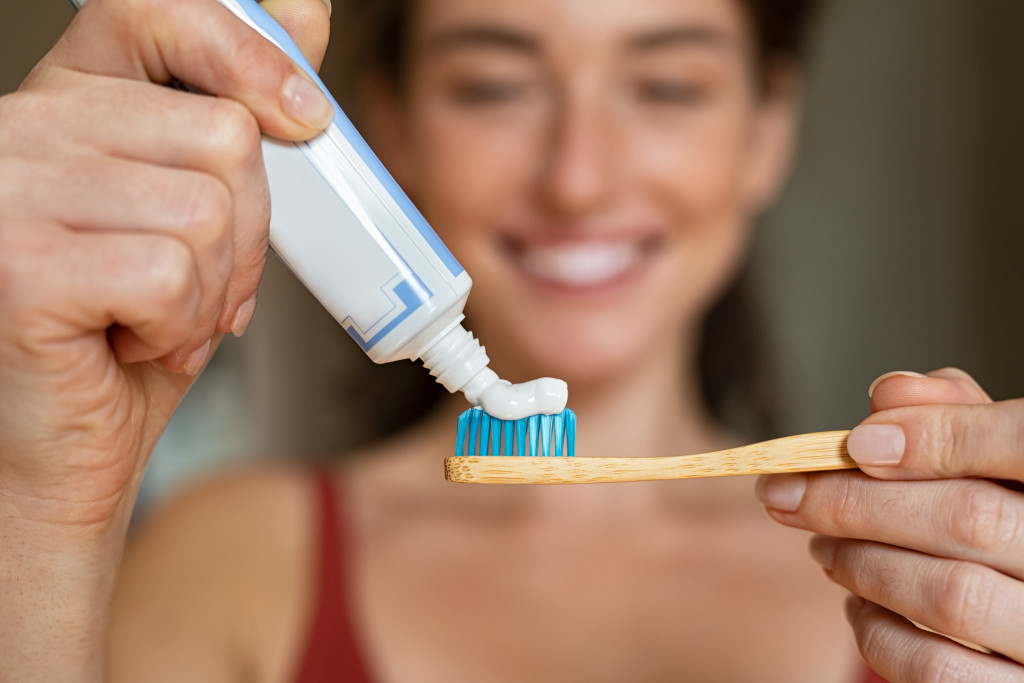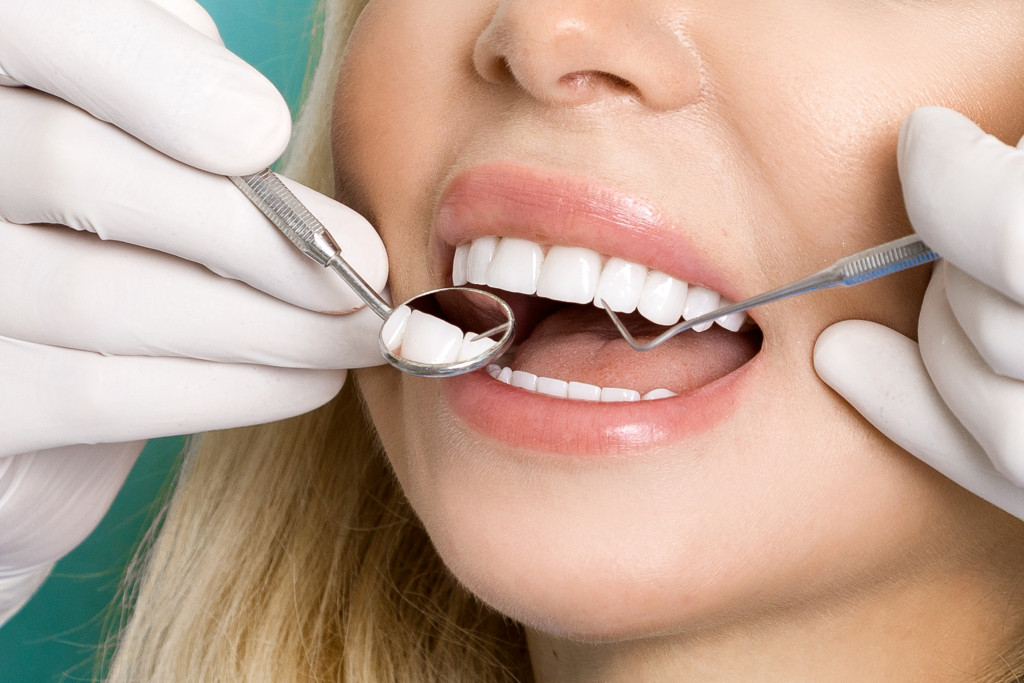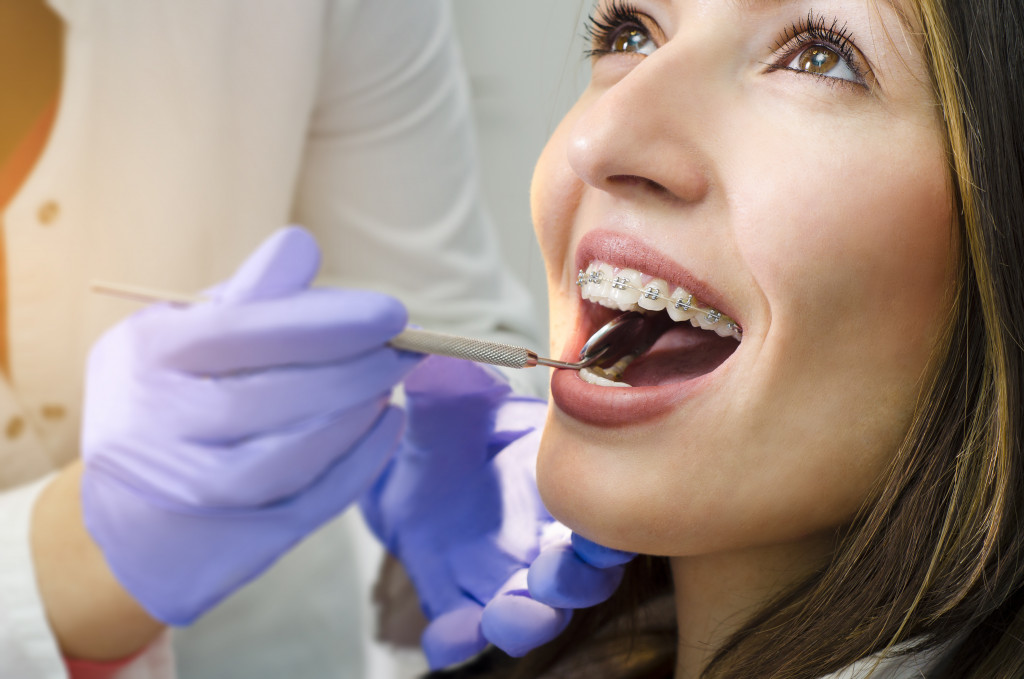- Taking care of your dental health is crucial for maintaining overall well-being.
- Maintaining a daily routine for brushing and flossing is crucial for oral hygiene.
- Selecting the appropriate tools and maintaining a balanced diet can greatly enhance oral health.
- Regular professional check-ups are imperative for the timely detection of any potential concerns.
- Orthodontic care can enhance both the aesthetics and function of teeth.
Your dental health is a vital part of your overall well-being, and it deserves your full attention. With the hustle and bustle of daily life, it’s easy to let dental care fall to the wayside, but the consequences can affect more than just your mouth. Tooth decay, gum disease, and other oral health issues can lead to pain, difficulty eating, and even serious health conditions. By prioritizing your dental health now, you’re taking a step toward a healthier future. These five tips will help you keep your smile bright and your teeth in top condition.
1. Establish and Stick to a Daily Dental Routine
Creating a daily dental care routine is your first defense against oral health issues. Brushing twice a day with fluoride toothpaste is a must. It’s not just about the morning rush; brushing before bed is critical to remove the buildup of plaque and bacteria that accumulate throughout the day.
Flossing should also be a non-negotiable part of your daily routine. It removes food particles and plaque that your toothbrush can’t reach, and it’s essential for preventing gum disease. Remember, a quick run of floss between your teeth is all it takes to lower your risk of oral health problems significantly.
2. Choose Your Tools Wisely

Not all dental care products are created equal. When selecting a toothbrush, choose one with soft bristles to prevent gum damage. Changing it every three to four months, or sooner if the bristles are frayed, is crucial to maintain its effectiveness. Electric toothbrushes are also a good option, as they can be more efficient at removing plaque.
Your choice of toothpaste should also be deliberate. Look for options that contain fluoride and have the American Dental Association (ADA) seal of approval. If you have specific concerns, like sensitive teeth or gingivitis, there are specialized toothpastes that can help address those issues.
3. Mind Your Diet
What you eat has a significant impact on your dental health. Not only will this help maintain your overall health, but it will also benefit your teeth and gums.
Here are the types of diet for better dental health:
Low-Sugar Diet
A low-sugar diet is essential for maintaining good dental health. Consuming excessive amounts of sugar can lead to the growth of harmful bacteria in your mouth, causing plaque buildup and cavities. Limit your sugary snacks and drinks, such as candies, sodas, and sports drinks. Instead, opt for healthier alternatives like fruits or unsweetened tea.
Acidic Foods
Acidic foods can erode tooth enamel, leaving teeth vulnerable to decay and sensitivity. Some common acidic foods to watch out for include citrus fruits, tomatoes, pickles, and vinegar-based dressings or marinades. You don’t have to eliminate these foods from your diet entirely; just be sure to consume them in moderation and rinse your mouth with water after eating to neutralize the acid.
Vitamin-Rich Foods
Vitamins play a crucial role in maintaining good dental health. Vitamin C helps to strengthen blood vessels and fight inflammation, which is essential for healthy gums. Foods rich in vitamin C include oranges, strawberries, red peppers, and broccoli.
Probiotic Foods
Probiotics are “good” bacteria that help balance the natural flora in your mouth. By reducing harmful bacteria, probiotics can help prevent plaque buildup and tooth decay. Yogurt, kefir, and sauerkraut are all good sources of probiotics. Just choose options with low sugar content and no added sweeteners.
4. Don’t Neglect Professional Dental Care

Regular visits to your dentist are crucial for maintaining dental health. These check-ups allow for the early detection and treatment of issues like cavities, gum disease, and even oral cancer. Dentists can also provide professional cleanings that remove tartar build-up, which you can’t do at home.
In between visits, pay attention to your oral health. If you notice any changes like increased sensitivity, pain, or bleeding gums, don’t wait for your next scheduled appointment—contact your dentist right away. Prompt attention to such changes can prevent more serious problems down the line.
5. Straighten Up with Expert Care
Sometimes, despite your best efforts, you need extra help to keep your dental health on track. If you’re dealing with misaligned teeth, bite issues, or other complex dental problems, a professional orthodontist can make a difference. These specialists are experts in straightening teeth and correcting bites, which can not only improve the look of your smile but also its function and health.
Orthodontic treatment can prevent many problems, including difficulties with chewing, speaking, and keeping teeth clean. Crowded or crooked teeth can be harder to brush and floss effectively, leading to an increased risk of decay and gum disease. So, investing in orthodontic care is not just about aesthetics; it’s a decision that can enhance your dental health for years.
To Wrap It Up
Taking care of your dental health is an investment in your overall quality of life. By establishing a thorough daily dental routine, choosing the right tools, watching your diet, keeping up with professional dental visits, and seeking specialized care when necessary, you can keep your teeth and gums healthy.
Each step you take towards better dental health not only improves your smile but also supports your total body health, allowing you to speak, eat, and live comfortably. Remember, your mouth is a gateway to your well-being, so give it the care and attention it deserves.

